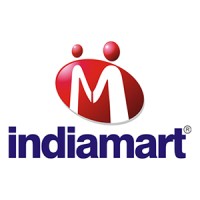Company Details
bookingholdings
16,824
48,978
513
bookingholdings.com
0
BOO_1951844
In-progress

Booking Holdings (NASDAQ: BKNG) Company CyberSecurity Posture
bookingholdings.comBooking Holdings is the world’s leading provider of online travel & related services, provided to consumers and local partners in more than 220 countries and territories through six primary consumer-facing brands: Booking.com, Priceline, Agoda, Rentalcars.com, KAYAK and OpenTable. Collectively, Booking Holdings operates in more than 40 languages across Europe, North America, South America, the Asia-Pacific region, the Middle East and Africa. The mission of Booking Holdings is to make it easier for everyone to experience the world.
Company Details
bookingholdings
16,824
48,978
513
bookingholdings.com
0
BOO_1951844
In-progress
Between 800 and 849

 BH Global Score (TPRM)
BH Global Score (TPRM)XXXX

Description: The rise of clandestine 'travel agencies' on darknet forums has led to significant financial losses for travel and hospitality industries. These agencies sell fraudulently booked flights, hotels, and other services at discounted rates, starting with credential theft and ending with fraudulent bookings. Airlines lose seat inventory, hotels absorb charge-backs, and travelers face drained reward balances. Trustwave reported one agency processed over 2,000 bookings in Q1 2025, netting $1.4 million in illicit revenue.
Description: The **ClickFix phishing campaign** targeted **Booking.com** and its affiliated hotels by exploiting compromised accounts to distribute **PureRAT malware** via phishing emails and WhatsApp messages. Attackers purchased stolen **Booking.com administrator credentials** from dark web forums (e.g., LolzTeam) to craft convincing scams. Victims—both hotels and guests—were lured into fake **Booking/Expedia login pages**, where their **login credentials and payment card data** were harvested. The malware (**PureRAT**) enabled remote access, keystroke logging, and surveillance via webcam/microphone, allowing attackers to map hotel customer databases for further fraud. Fraudulent wire transactions were also executed using stolen data. The campaign, active since at least **April 2025**, leveraged real reservation details to enhance credibility, amplifying financial and reputational damage. While the exact scale of compromise remains undisclosed, the attack disrupted trust in Booking.com’s platform, exposed sensitive customer financial data, and enabled downstream fraud against hotels and guests.
Description: A large-scale phishing campaign orchestrated by Russian threat actors has targeted **Booking.com** since February, involving the registration of over **4,300 fraudulent domains** mimicking legitimate booking and rental platforms like Expedia and Agoda. The attack specifically aimed to deceive hotel guests into divulging their **payment details**, including credit card information, bank account credentials, and personal identification data. By impersonating trusted booking services, the threat actors exploited user trust to harvest sensitive financial information, leading to potential **fraudulent transactions, identity theft, and financial losses** for affected customers. The scale of the operation suggests a systematic effort to compromise a high volume of users, leveraging social engineering tactics to bypass traditional security measures. While the exact number of victims remains undisclosed, the prolonged duration of the campaign (since February) indicates a sustained and evolving threat, with potential long-term reputational damage to Booking.com due to eroded customer confidence in its platform’s security.


No incidents recorded for Booking Holdings (NASDAQ: BKNG) in 2025.
No incidents recorded for Booking Holdings (NASDAQ: BKNG) in 2025.
No incidents recorded for Booking Holdings (NASDAQ: BKNG) in 2025.
BH cyber incidents detection timeline including parent company and subsidiaries

Booking Holdings is the world’s leading provider of online travel & related services, provided to consumers and local partners in more than 220 countries and territories through six primary consumer-facing brands: Booking.com, Priceline, Agoda, Rentalcars.com, KAYAK and OpenTable. Collectively, Booking Holdings operates in more than 40 languages across Europe, North America, South America, the Asia-Pacific region, the Middle East and Africa. The mission of Booking Holdings is to make it easier for everyone to experience the world.


IndiaMART is India's largest online B2B marketplace, connecting buyers with suppliers across a wide array of industries. IndiaMART provides a platform for Small & Medium Enterprises (SMEs), large enterprises, and individual buyers, helping them access diverse portfolios of quality products. Since

The mission of the Death Star is to keep the local systems "in line". As we have recently dissolved our Board of Directors, there is little resistance to our larger goal of universal domination. Our Stormtroopers are excellent shots and operate with our Navy, and are fielded like marines - sep

Avnet is a global electronic components distributor with extensive design, product, marketing and supply chain expertise for customers and suppliers at every stage of the product lifecycle. For the past 100 years, Avnet has helped its customers and suppliers around the world realize the transformati

YouTube is a team-oriented, creative workplace where every single employee has a voice in the choices we make and the features we implement. We work together in small teams to design, develop, and roll out key features and products in very short time frames. Which means something you write today cou
Zomato’s mission statement is “better food for more people.” Since our inception in 2010, we have grown tremendously, both in scope and scale - and emerged as India’s most trusted brand during the pandemic, along with being one of the largest hyperlocal delivery networks in the country. Today, Zoma

Do the can't be done. At Peraton, we're at the forefront of delivering the next big thing every day. We're the partner of choice to help solve some of the world's most daunting challenges, delivering bold, new solutions to keep people around the world safer and more secure. How do we do it? By thi
Meesho is India’s fastest growing internet commerce company. We want to make eCommerce accessible to all. Our vision is to enable 100 million small businesses in India, including individual entrepreneurs, to succeed online. Our mission is to democratise internet commerce by bringing a range of produ
Launched in May 2003, Taobao Marketplace (www.taobao.com) is the online shopping destination of choice for Chinese consumers looking for wide selection, value and convenience. Shoppers choose from a wide range of products and services on Taobao Marketplace, which features hundreds of millions of pro
Sohu.com Inc. (NASDAQ: SOHU) is China's premier online brand and indispensable to the daily life of millions of Chinese, providing a network of web properties and community based/web 2.0 products which offer the vast Sohu user community a broad array of choices regarding information, entertainment a
.png)
Let's dig into the relative performance of Booking (NASDAQ:BKNG) and its peers as we unravel the now-completed Q3 consumer internet earnings...
Booking Holdings Inc. (NASDAQ:BKNG) ranks among the best long-term stocks to buy according to D. E. Shaw. In light of Booking Holdings Inc.
Booking Holdings, the world's leading provider of online travel and related services, and parent company of consumer-facing brands including...
Priceline (NASDAQ:BKNG) announced that Brigit Zimmerman will become Chief Executive Officer effective January 1, 2026.
OpenAI made a big splash last week when, on Oct. 28, it announced a corporate restructuring that many analysts see as the company paving the...
Online travel agency Booking Holdings (NASDAQ:BKNG) reported Q3 CY2025 results topping the market's revenue expectations, with sales up...
Over the past year, we've all been talking (and hearing) a lot about MCP, the Model Context Protocol. It's the new standard introduced by...
Booking Holdings (NASDAQ: BKNG) will release its third quarter 2025 financial results at approximately 4:00 p.m. ET on October 28, 2025 via...
Wedgewood Partners, an investment management company, released its third-quarter 2025 investor letter. The letter is available for download...

Explore insights on cybersecurity incidents, risk posture, and Rankiteo's assessments.
The official website of Booking Holdings (NASDAQ: BKNG) is http://www.bookingholdings.com.
According to Rankiteo, Booking Holdings (NASDAQ: BKNG)’s AI-generated cybersecurity score is 843, reflecting their Good security posture.
According to Rankiteo, Booking Holdings (NASDAQ: BKNG) currently holds 0 security badges, indicating that no recognized compliance certifications are currently verified for the organization.
According to Rankiteo, Booking Holdings (NASDAQ: BKNG) is not certified under SOC 2 Type 1.
According to Rankiteo, Booking Holdings (NASDAQ: BKNG) does not hold a SOC 2 Type 2 certification.
According to Rankiteo, Booking Holdings (NASDAQ: BKNG) is not listed as GDPR compliant.
According to Rankiteo, Booking Holdings (NASDAQ: BKNG) does not currently maintain PCI DSS compliance.
According to Rankiteo, Booking Holdings (NASDAQ: BKNG) is not compliant with HIPAA regulations.
According to Rankiteo,Booking Holdings (NASDAQ: BKNG) is not certified under ISO 27001, indicating the absence of a formally recognized information security management framework.
Booking Holdings (NASDAQ: BKNG) operates primarily in the Technology, Information and Internet industry.
Booking Holdings (NASDAQ: BKNG) employs approximately 16,824 people worldwide.
Booking Holdings (NASDAQ: BKNG) presently has no subsidiaries across any sectors.
Booking Holdings (NASDAQ: BKNG)’s official LinkedIn profile has approximately 48,978 followers.
Booking Holdings (NASDAQ: BKNG) is classified under the NAICS code 513, which corresponds to Others.
Yes, Booking Holdings (NASDAQ: BKNG) has an official profile on Crunchbase, which can be accessed here: https://www.crunchbase.com/organization/the-priceline-group.
Yes, Booking Holdings (NASDAQ: BKNG) maintains an official LinkedIn profile, which is actively utilized for branding and talent engagement, which can be accessed here: https://www.linkedin.com/company/bookingholdings.
As of November 27, 2025, Rankiteo reports that Booking Holdings (NASDAQ: BKNG) has experienced 3 cybersecurity incidents.
Booking Holdings (NASDAQ: BKNG) has an estimated 12,498 peer or competitor companies worldwide.
Incident Types: The types of cybersecurity incidents that have occurred include Cyber Attack.
Total Financial Loss: The total financial loss from these incidents is estimated to be $0.
Detection and Response: The company detects and responds to cybersecurity incidents through an containment measures with geo-fenced mfa on loyalty portals, containment measures with velocity limits tied to device-id, containment measures with dark-web telemetry that flags brand mentions, and third party assistance with sekoia (cybersecurity research)..
Title: Dark Web Travel Agency Fraud
Description: The rise of clandestine travel agencies on darknet forums has led to a full-fledged service economy that sells half-priced flights, five-star hotels, and even yacht charters using stolen credentials and fraudulent bookings.
Type: Fraud
Attack Vector: Mass-phishingInfostealer trojans
Vulnerability Exploited: Credential theft, Stolen payment tokens
Threat Actor: Dark web travel agencies
Motivation: Financial gain
Title: ClickFix phishing campaign targets hotels and guests with PureRAT malware
Description: Attackers exploit compromised Booking.com accounts and sell stolen credentials on dark web forums. Guests are tricked into fake Booking/Expedia sites, losing login and payment card data. Hotels and their guests are targeted by a sophisticated ClickFix campaign delivering PureRAT malware, stealing credentials, and enabling fraudulent wire transactions. The campaign involves phishing emails, fake reCAPTCHA challenges, and personalized WhatsApp messages with real reservation details to deceive victims. PureRAT grants remote access, keystroke logging, and data exfiltration capabilities. The campaign has been active since at least April 2025 and remains operational as of early October 2025.
Date Publicly Disclosed: 2025-10-01
Type: phishing
Attack Vector: compromised email accountsphishing linksfake reCAPTCHA challengemalware download (PureRAT)personalized WhatsApp messagesfake Booking/Expedia websites
Vulnerability Exploited: human trust (social engineering)compromised Booking.com accountslack of multi-factor authentication (MFA)
Motivation: financial gaindata theftfraudulent transactions
Title: Phishing Campaign Targeting Booking and Rental Services by Russian Threat Actors
Description: More than 4,300 domains have been registered by Russian threat actors to impersonate widely known booking and rental services, such as Booking.com, Expedia, and Agoda, as part of a phishing campaign that has sought to pilfer hotel guests' payment details since February 2025.
Date Publicly Disclosed: 2025-11-14
Type: phishing
Attack Vector: malicious domain registrationsocial engineeringphishing emails/websites
Threat Actor: Russian threat actors
Motivation: financial gaintheft of payment details
Common Attack Types: The most common types of attacks the company has faced is Cyber Attack.
Identification of Attack Vectors: The company identifies the attack vectors used in incidents through Mass-phishing, Infostealer trojans, compromised Booking.com accountspurchased administrator contact info from dark web and phishing domains impersonating booking services.

Financial Loss: Airlines lose seat inventory, hotels absorb charge-backs, travelers face drained reward balances
Systems Affected: Booking systems, payment gateways
Payment Information Risk: High

Data Compromised: Login credentials, Payment card data, Reservation details
Brand Reputation Impact: potential loss of trust in Booking.com and affected hotels
Identity Theft Risk: ['high (due to stolen credentials and payment data)']
Payment Information Risk: ['high (credit card data stolen)']

Data Compromised: Payment details
Brand Reputation Impact: potential reputational damage to Booking.com, Expedia, Agoda, and other impersonated brands
Identity Theft Risk: ['high (due to stolen payment details)']
Payment Information Risk: ['high (primary target of the campaign)']
Average Financial Loss: The average financial loss per incident is $0.00.
Commonly Compromised Data Types: The types of data most commonly compromised in incidents are Loyalty credentials, Payment tokens, Login Credentials, Payment Card Information, Reservation Details, , Payment Details and .

Entity Type: Airlines, Hotels, Travel Agencies
Industry: Travel and Hospitality

Entity Name: Booking.com
Entity Type: Online Travel Agency (OTA)
Industry: Hospitality/Travel
Location: Global

Entity Name: Expedia
Entity Type: Online Travel Agency (OTA)
Industry: Hospitality/Travel
Location: Global

Entity Name: Unspecified Hotels
Entity Type: Hospitality Business
Industry: Hospitality
Location: Global

Entity Name: Hotel Guests
Entity Type: Individual Consumers
Location: Global

Entity Name: Booking.com
Entity Type: company
Industry: travel/booking services
Location: global

Entity Name: Expedia
Entity Type: company
Industry: travel/booking services
Location: global

Entity Name: Agoda
Entity Type: company
Industry: travel/booking services
Location: global

Entity Name: Hotel guests (unspecified hotels)
Entity Type: individuals
Location: global

Containment Measures: Geo-fenced MFA on loyalty portalsVelocity limits tied to device-IDDark-web telemetry that flags brand mentions

Third Party Assistance: Sekoia (Cybersecurity Research).
Third-Party Assistance: The company involves third-party assistance in incident response through Sekoia (cybersecurity research), .

Type of Data Compromised: Loyalty credentials, Payment tokens
Sensitivity of Data: High

Type of Data Compromised: Login credentials, Payment card information, Reservation details
Sensitivity of Data: high (financial and personal data)
Data Exfiltration: credentials sold on dark web forums (e.g., LolzTeam)
Personally Identifiable Information: potentially included (names, contact details, payment info)

Type of Data Compromised: Payment details
Sensitivity of Data: high
Data Exfiltration: likely (payment details stolen)
Personally Identifiable Information: potentially (linked to payment details)
Handling of PII Incidents: The company handles incidents involving personally identifiable information (PII) through by geo-fenced mfa on loyalty portals, velocity limits tied to device-id, dark-web telemetry that flags brand mentions and .

Lessons Learned: Layered countermeasures are effective at disrupting high-speed fraud loops

Recommendations: Implement geo-fenced MFA on loyalty portals, velocity limits tied to device-ID, and dark-web telemetry that flags brand mentions
Key Lessons Learned: The key lessons learned from past incidents are Layered countermeasures are effective at disrupting high-speed fraud loops.
Implemented Recommendations: The company has implemented the following recommendations to improve cybersecurity: Implement geo-fenced MFA on loyalty portals, velocity limits tied to device-ID and and dark-web telemetry that flags brand mentions.

Source: Trustwave

Source: TechRadar Pro

Source: Sekoia Cybersecurity Research
Additional Resources: Stakeholders can find additional resources on cybersecurity best practices at and Source: Trustwave, and Source: TechRadar Pro, and Source: Sekoia Cybersecurity Research, and Source: The Hacker NewsDate Accessed: 2025-11-14.

Investigation Status: Ongoing (as of October 2025)

Investigation Status: ongoing (as of disclosure date)

Entry Point: Mass-phishing, Infostealer trojans
High Value Targets: Loyalty credentials, Payment tokens
Data Sold on Dark Web: Loyalty credentials, Payment tokens

Entry Point: Compromised Booking.Com Accounts, Purchased Administrator Contact Info From Dark Web,
Backdoors Established: ['PureRAT malware']
High Value Targets: Hotel Administrators, Booking.Com Account Holders, Hotel Guests,
Data Sold on Dark Web: Hotel Administrators, Booking.Com Account Holders, Hotel Guests,

Entry Point: Phishing Domains Impersonating Booking Services,
Reconnaissance Period: ['since at least February 2025']
High Value Targets: Hotel Guests' Payment Details,
Data Sold on Dark Web: Hotel Guests' Payment Details,

Root Causes: Credential theft, Stolen payment tokens
Corrective Actions: Implement layered countermeasures

Root Causes: Successful Phishing Attacks, Lack Of Mfa On Booking.Com Accounts, Trust In Legitimate-Looking Communications,
Post-Incident Analysis Process: The company's process for conducting post-incident analysis is described as Sekoia (Cybersecurity Research), .
Corrective Actions Taken: The company has taken the following corrective actions based on post-incident analysis: Implement layered countermeasures.
Last Attacking Group: The attacking group in the last incident were an Dark web travel agencies and Russian threat actors.
Most Recent Incident Publicly Disclosed: The most recent incident publicly disclosed was on 2025-11-14.
Highest Financial Loss: The highest financial loss from an incident was Airlines lose seat inventory, hotels absorb charge-backs, travelers face drained reward balances.
Most Significant Data Compromised: The most significant data compromised in an incident were login credentials, payment card data, reservation details, , payment details and .
Third-Party Assistance in Most Recent Incident: The third-party assistance involved in the most recent incident was sekoia (cybersecurity research), .
Containment Measures in Most Recent Incident: The containment measures taken in the most recent incident was Geo-fenced MFA on loyalty portalsVelocity limits tied to device-IDDark-web telemetry that flags brand mentions.
Most Sensitive Data Compromised: The most sensitive data compromised in a breach were payment details, payment card data, reservation details and login credentials.
Most Significant Lesson Learned: The most significant lesson learned from past incidents was Layered countermeasures are effective at disrupting high-speed fraud loops.
Most Significant Recommendation Implemented: The most significant recommendation implemented to improve cybersecurity was Implement geo-fenced MFA on loyalty portals, velocity limits tied to device-ID and and dark-web telemetry that flags brand mentions.
Most Recent Source: The most recent source of information about an incident are Sekoia Cybersecurity Research, Trustwave, TechRadar Pro and The Hacker News.
Current Status of Most Recent Investigation: The current status of the most recent investigation is Ongoing (as of October 2025).
Most Recent Entry Point: The most recent entry point used by an initial access broker were an Mass-phishing and Infostealer trojans.
Most Recent Reconnaissance Period: The most recent reconnaissance period for an incident was since at least February 2025.
Most Significant Root Cause: The most significant root cause identified in post-incident analysis was Credential theft, Stolen payment tokens, successful phishing attackslack of MFA on Booking.com accountstrust in legitimate-looking communications.
Most Significant Corrective Action: The most significant corrective action taken based on post-incident analysis was Implement layered countermeasures.
.png)
Angular is a development platform for building mobile and desktop web applications using TypeScript/JavaScript and other languages. Prior to versions 19.2.16, 20.3.14, and 21.0.1, there is a XSRF token leakage via protocol-relative URLs in angular HTTP clients. The vulnerability is a Credential Leak by App Logic that leads to the unauthorized disclosure of the Cross-Site Request Forgery (XSRF) token to an attacker-controlled domain. Angular's HttpClient has a built-in XSRF protection mechanism that works by checking if a request URL starts with a protocol (http:// or https://) to determine if it is cross-origin. If the URL starts with protocol-relative URL (//), it is incorrectly treated as a same-origin request, and the XSRF token is automatically added to the X-XSRF-TOKEN header. This issue has been patched in versions 19.2.16, 20.3.14, and 21.0.1. A workaround for this issue involves avoiding using protocol-relative URLs (URLs starting with //) in HttpClient requests. All backend communication URLs should be hardcoded as relative paths (starting with a single /) or fully qualified, trusted absolute URLs.
Forge (also called `node-forge`) is a native implementation of Transport Layer Security in JavaScript. An Uncontrolled Recursion vulnerability in node-forge versions 1.3.1 and below enables remote, unauthenticated attackers to craft deep ASN.1 structures that trigger unbounded recursive parsing. This leads to a Denial-of-Service (DoS) via stack exhaustion when parsing untrusted DER inputs. This issue has been patched in version 1.3.2.
Forge (also called `node-forge`) is a native implementation of Transport Layer Security in JavaScript. An Integer Overflow vulnerability in node-forge versions 1.3.1 and below enables remote, unauthenticated attackers to craft ASN.1 structures containing OIDs with oversized arcs. These arcs may be decoded as smaller, trusted OIDs due to 32-bit bitwise truncation, enabling the bypass of downstream OID-based security decisions. This issue has been patched in version 1.3.2.
Suricata is a network IDS, IPS and NSM engine developed by the OISF (Open Information Security Foundation) and the Suricata community. Prior to versions 7.0.13 and 8.0.2, working with large buffers in Lua scripts can lead to a stack overflow. Users of Lua rules and output scripts may be affected when working with large buffers. This includes a rule passing a large buffer to a Lua script. This issue has been patched in versions 7.0.13 and 8.0.2. A workaround for this issue involves disabling Lua rules and output scripts, or making sure limits, such as stream.depth.reassembly and HTTP response body limits (response-body-limit), are set to less than half the stack size.
Suricata is a network IDS, IPS and NSM engine developed by the OISF (Open Information Security Foundation) and the Suricata community. In versions from 8.0.0 to before 8.0.2, a NULL dereference can occur when the entropy keyword is used in conjunction with base64_data. This issue has been patched in version 8.0.2. A workaround involves disabling rules that use entropy in conjunction with base64_data.

Get company history
















Every week, Rankiteo analyzes billions of signals to give organizations a sharper, faster view of emerging risks. With deeper, more actionable intelligence at their fingertips, security teams can outpace threat actors, respond instantly to Zero-Day attacks, and dramatically shrink their risk exposure window.
Identify exposed access points, detect misconfigured SSL certificates, and uncover vulnerabilities across the network infrastructure.
Gain visibility into the software components used within an organization to detect vulnerabilities, manage risk, and ensure supply chain security.
Monitor and manage all IT assets and their configurations to ensure accurate, real-time visibility across the company's technology environment.
Leverage real-time insights on active threats, malware campaigns, and emerging vulnerabilities to proactively defend against evolving cyberattacks.




